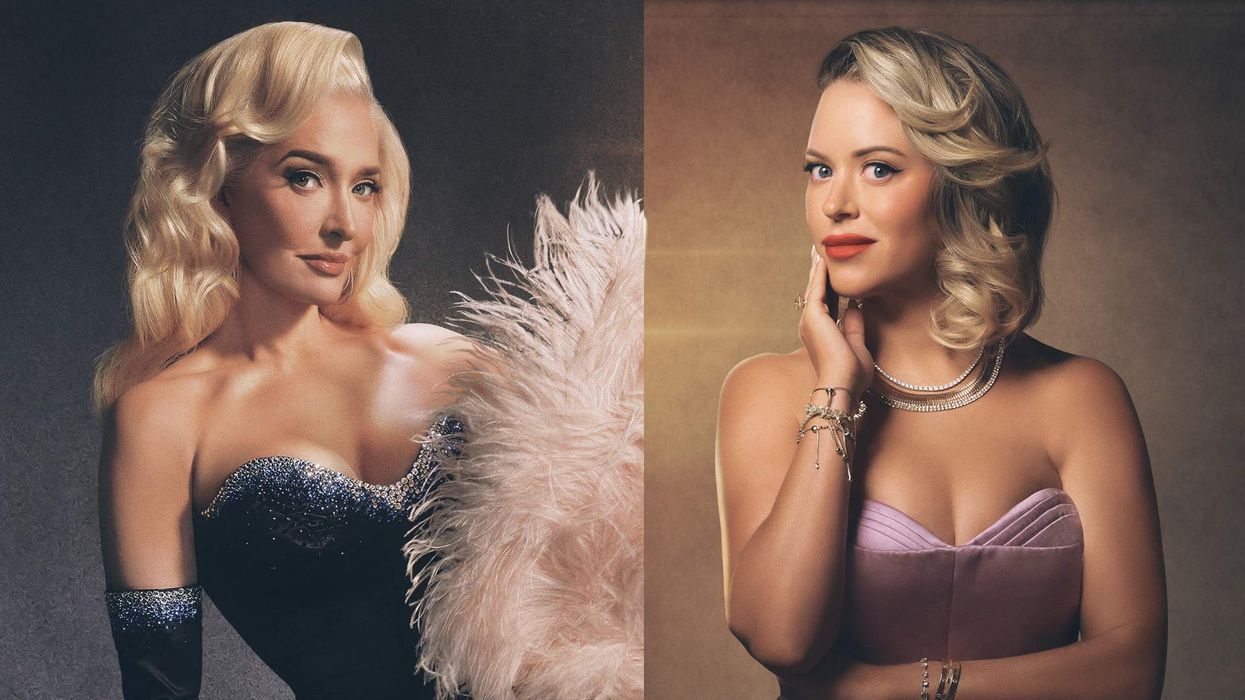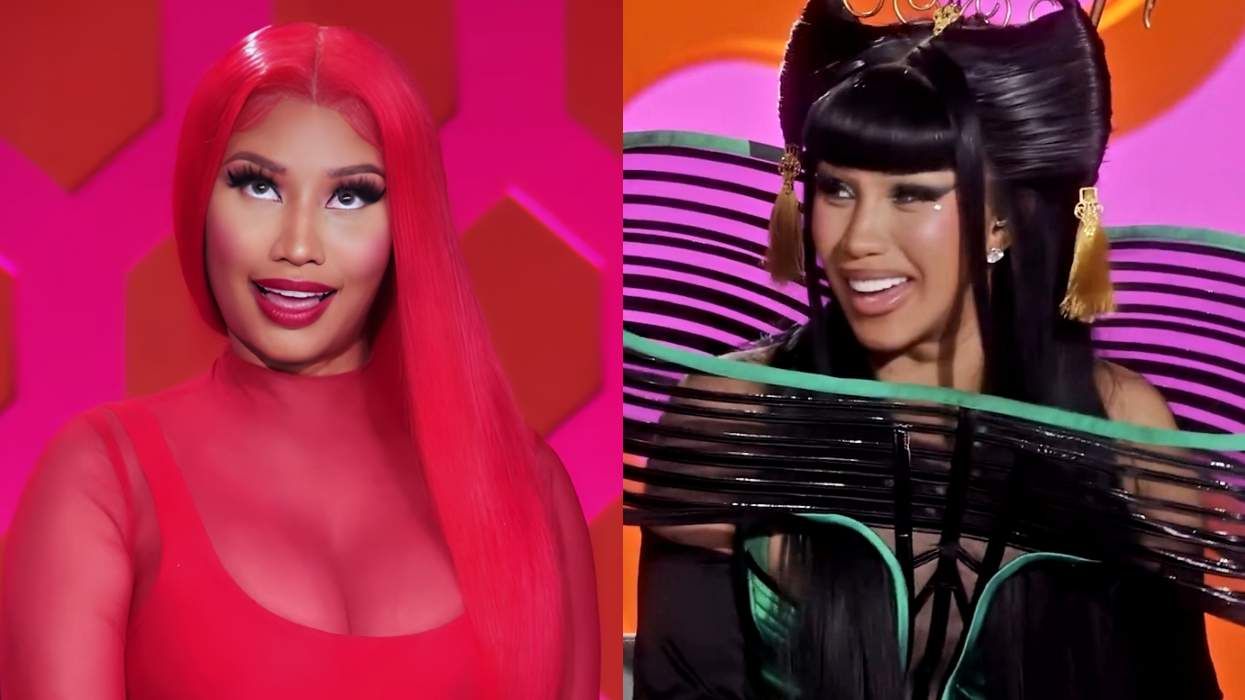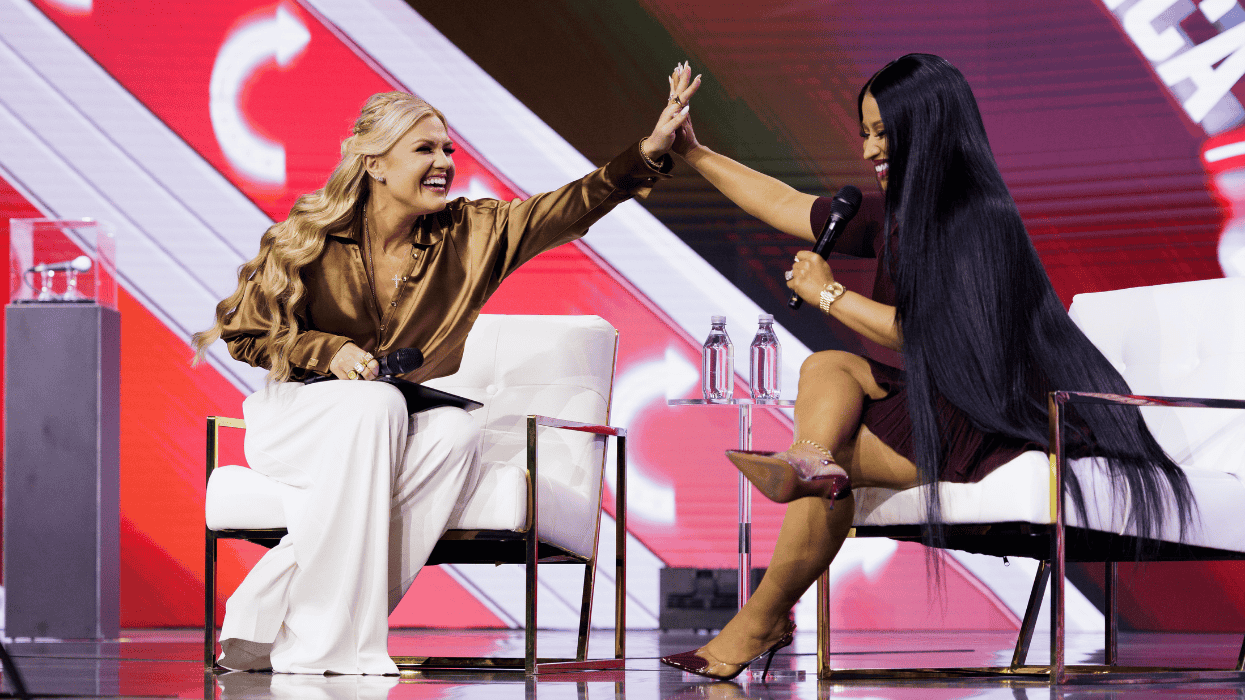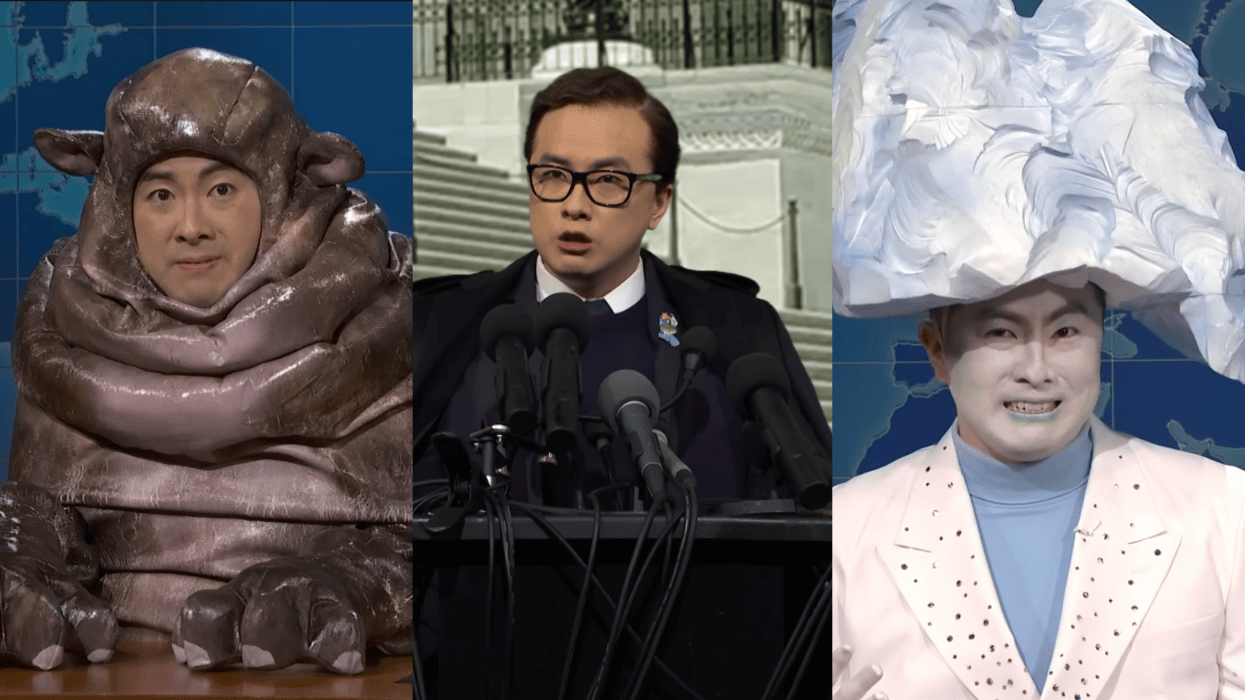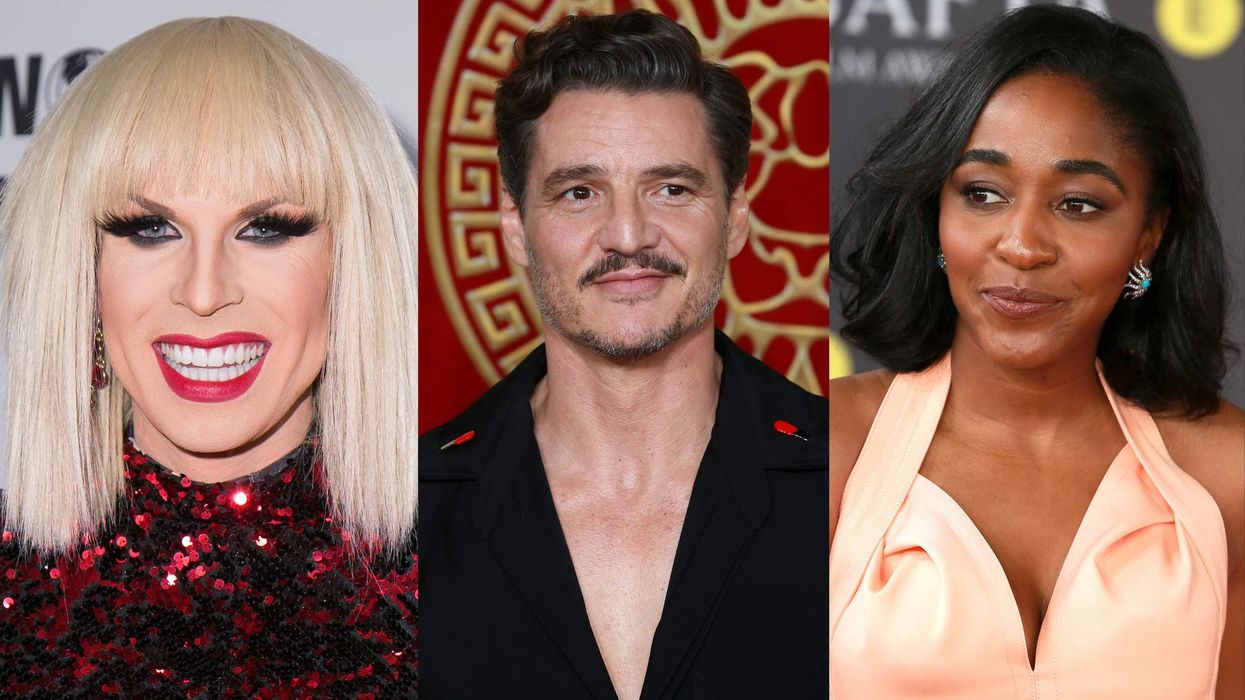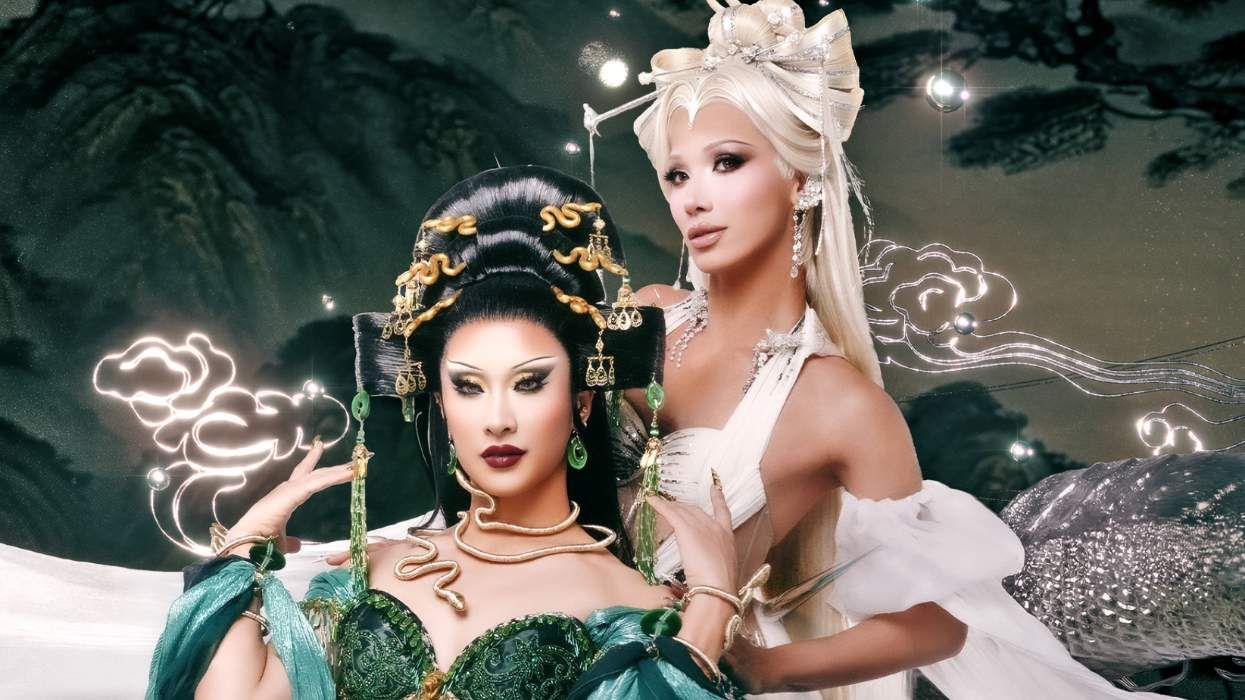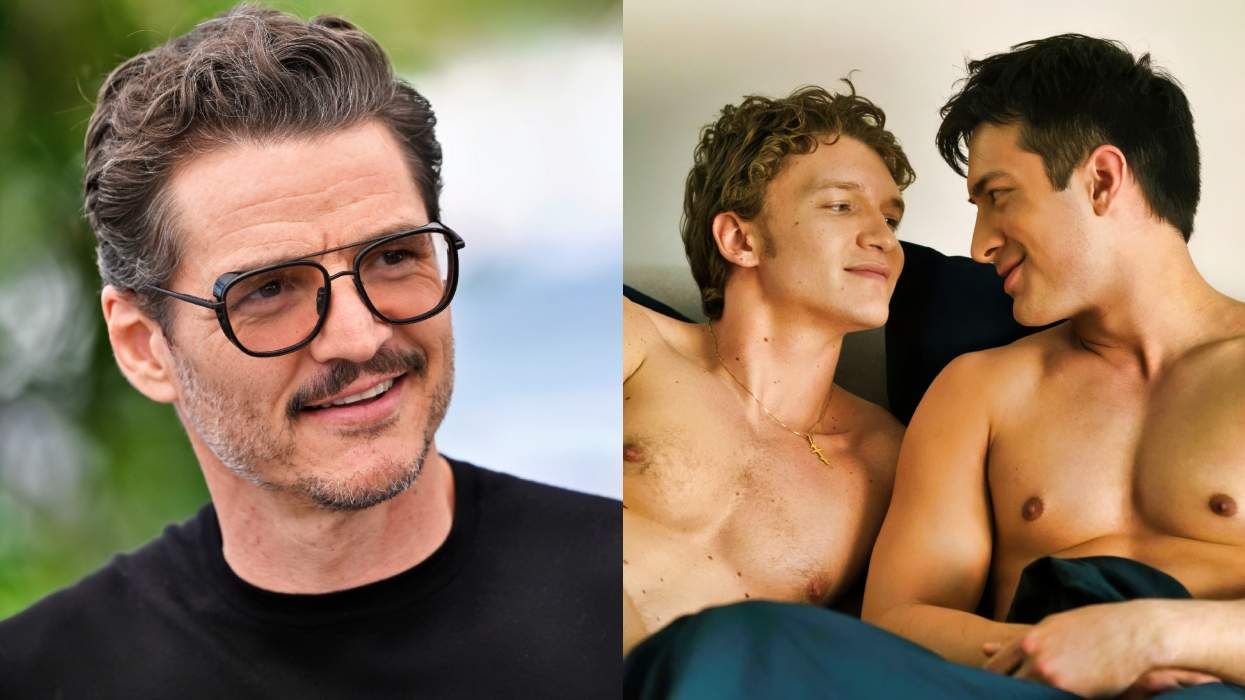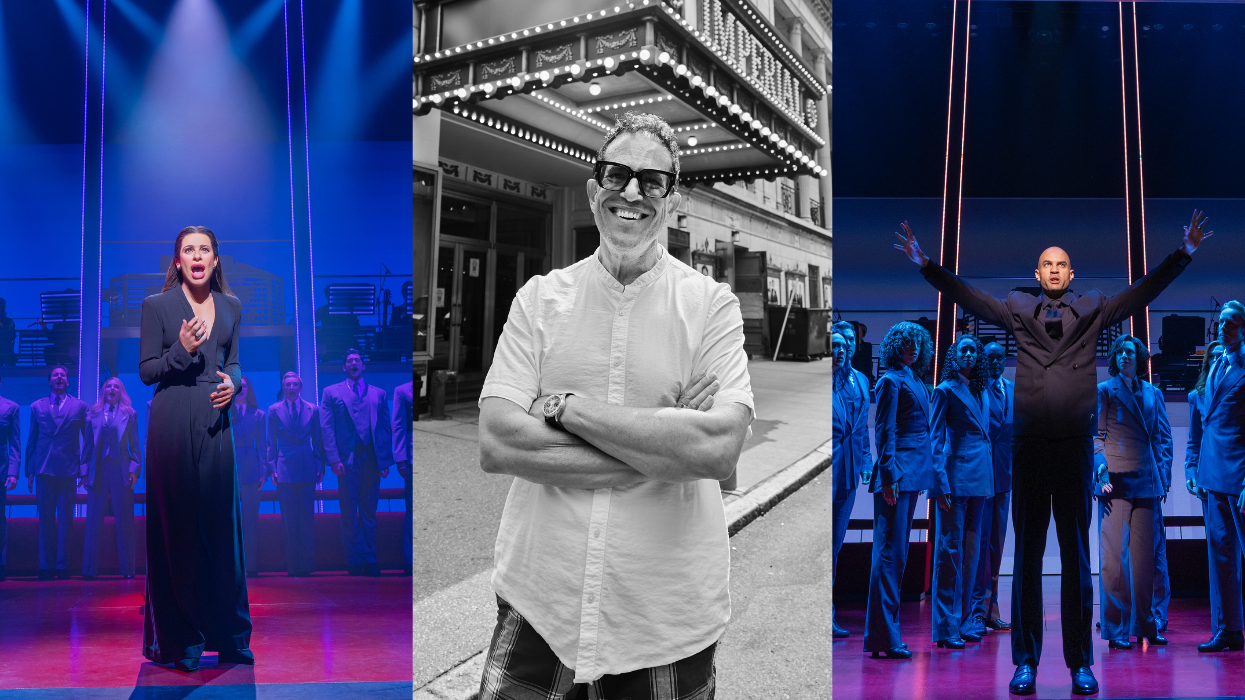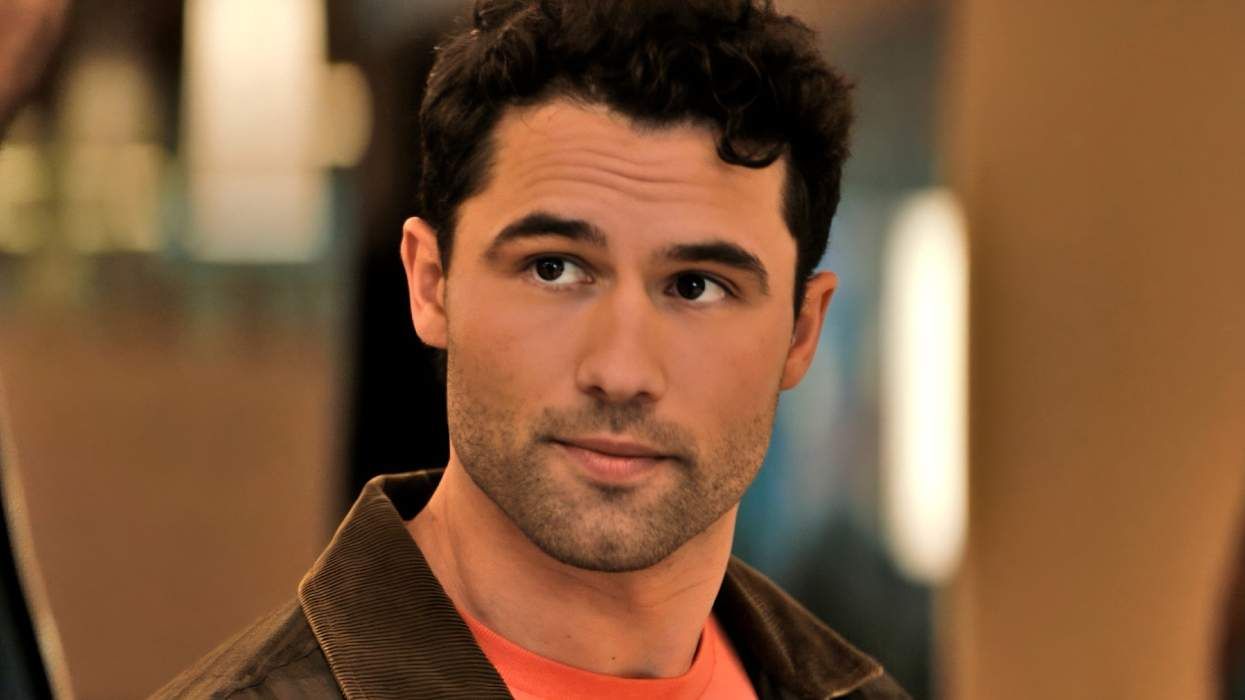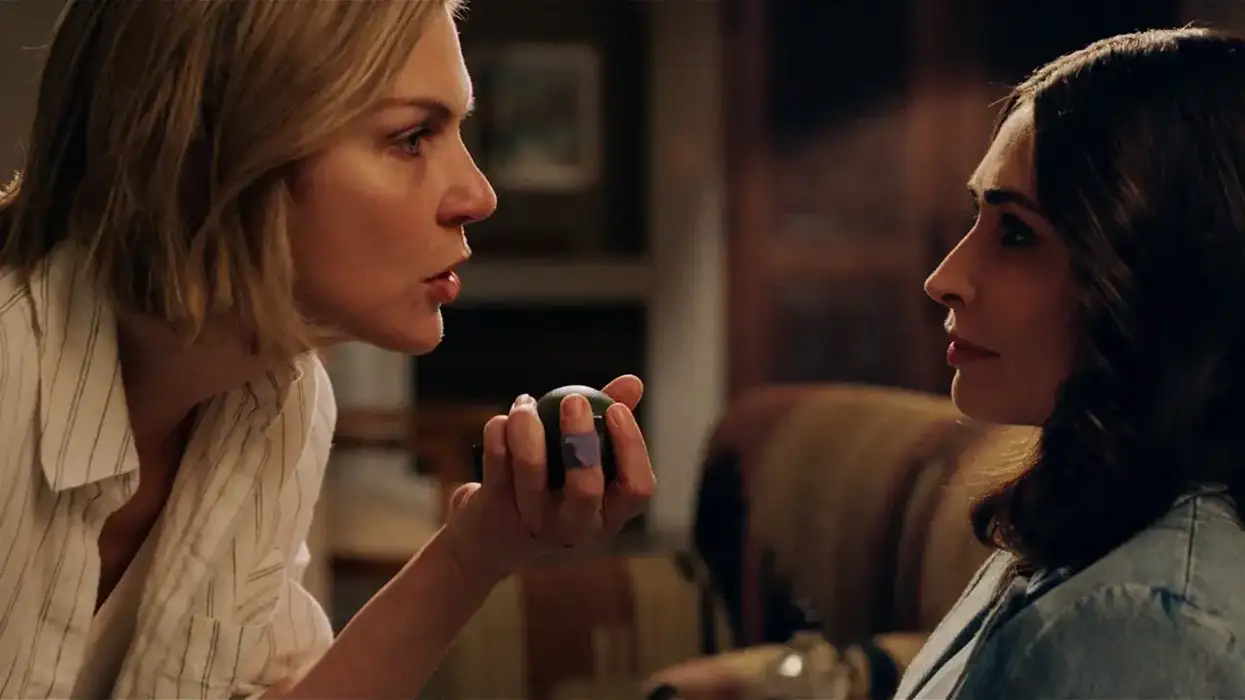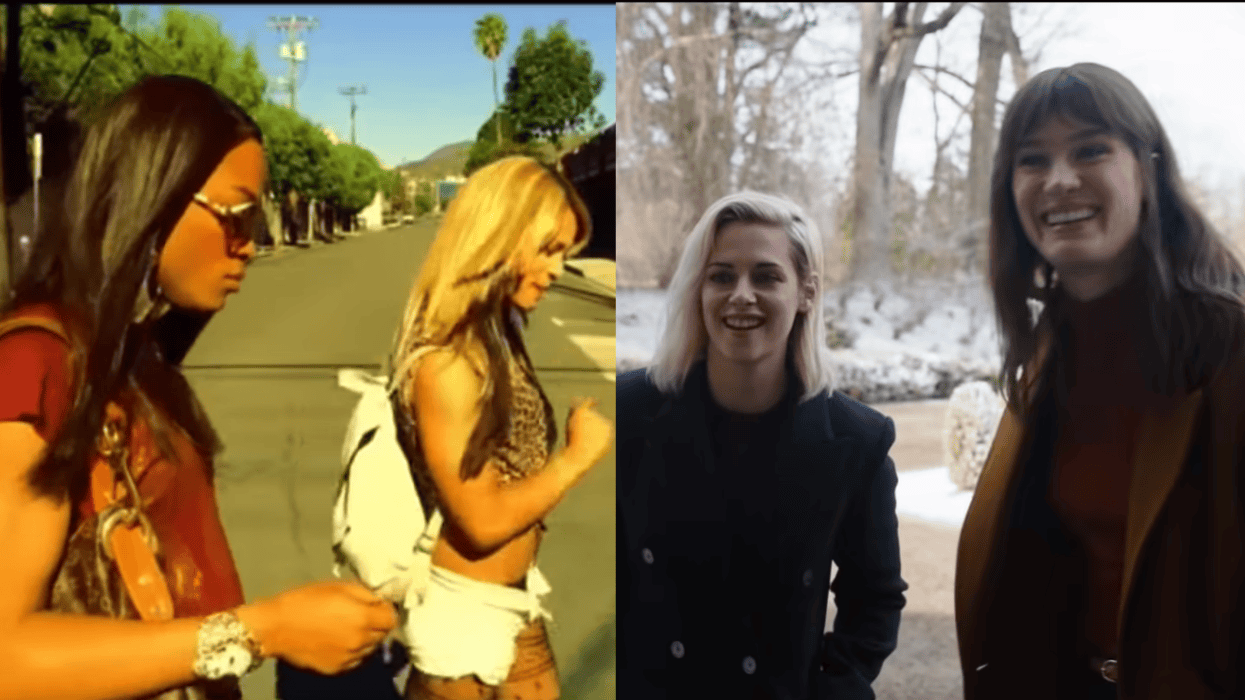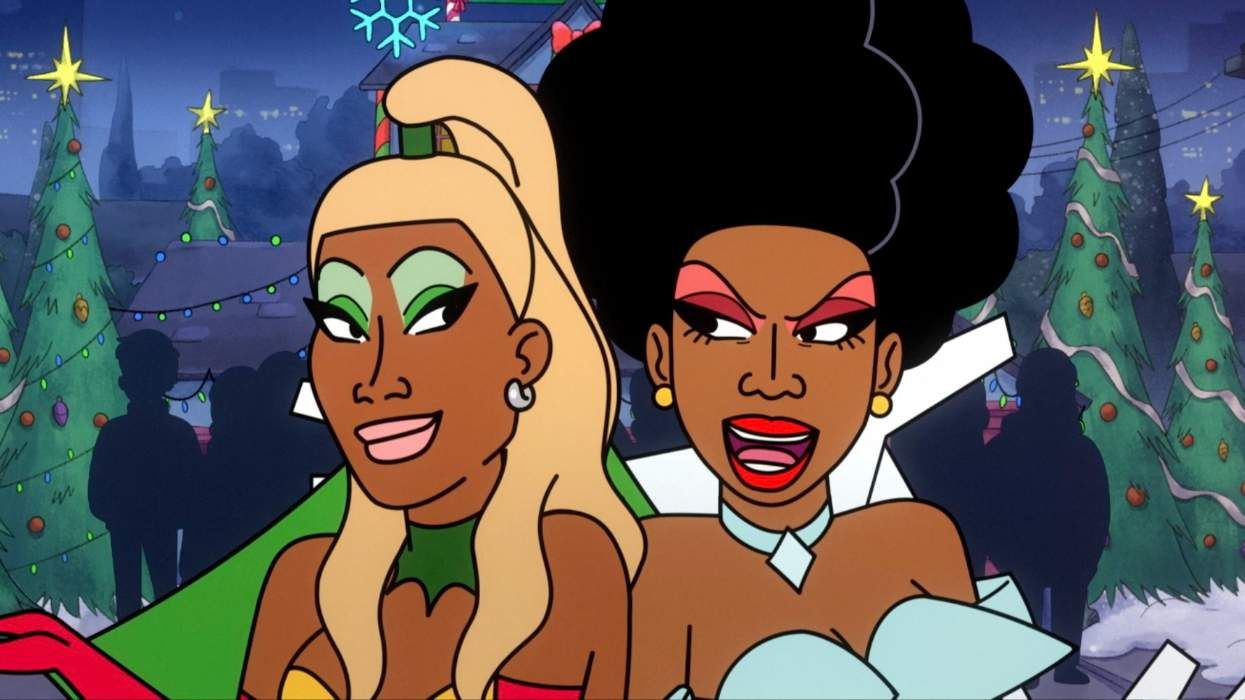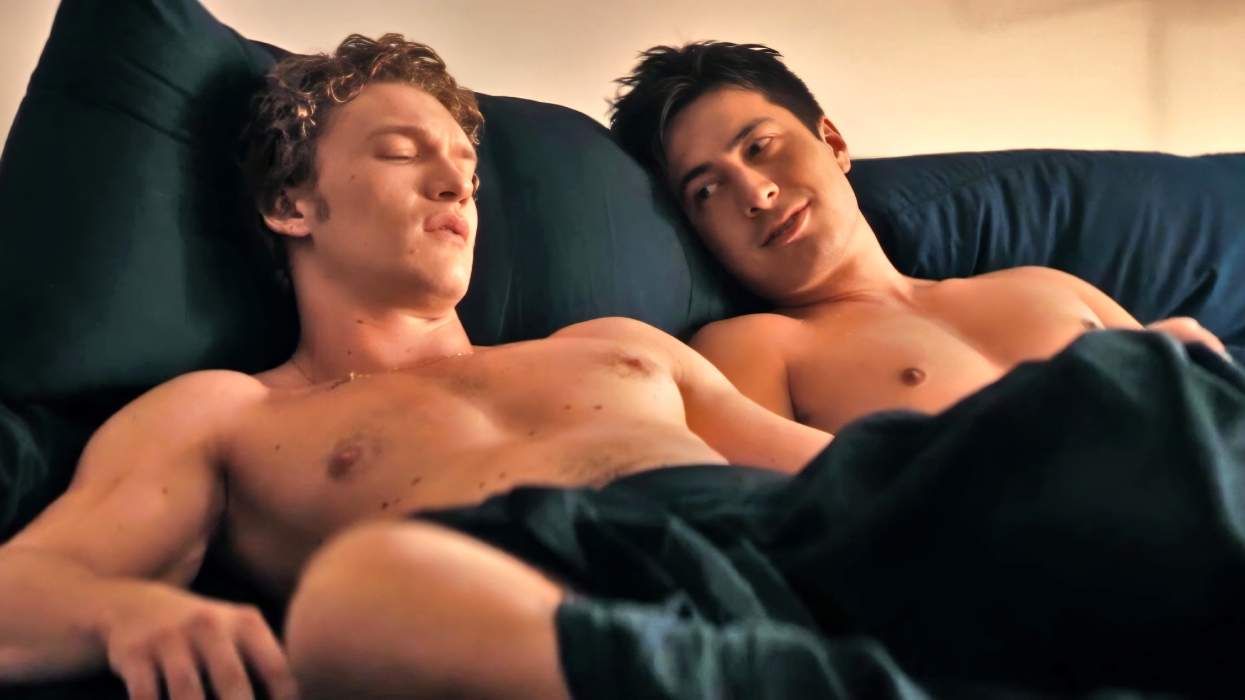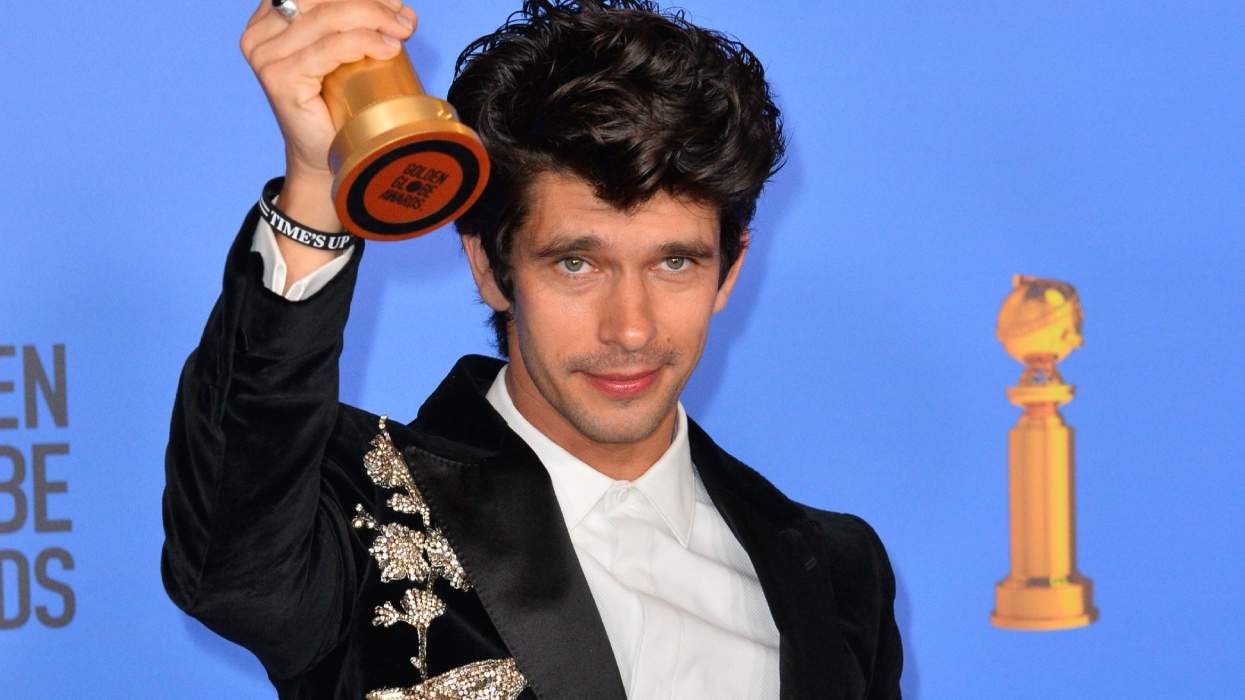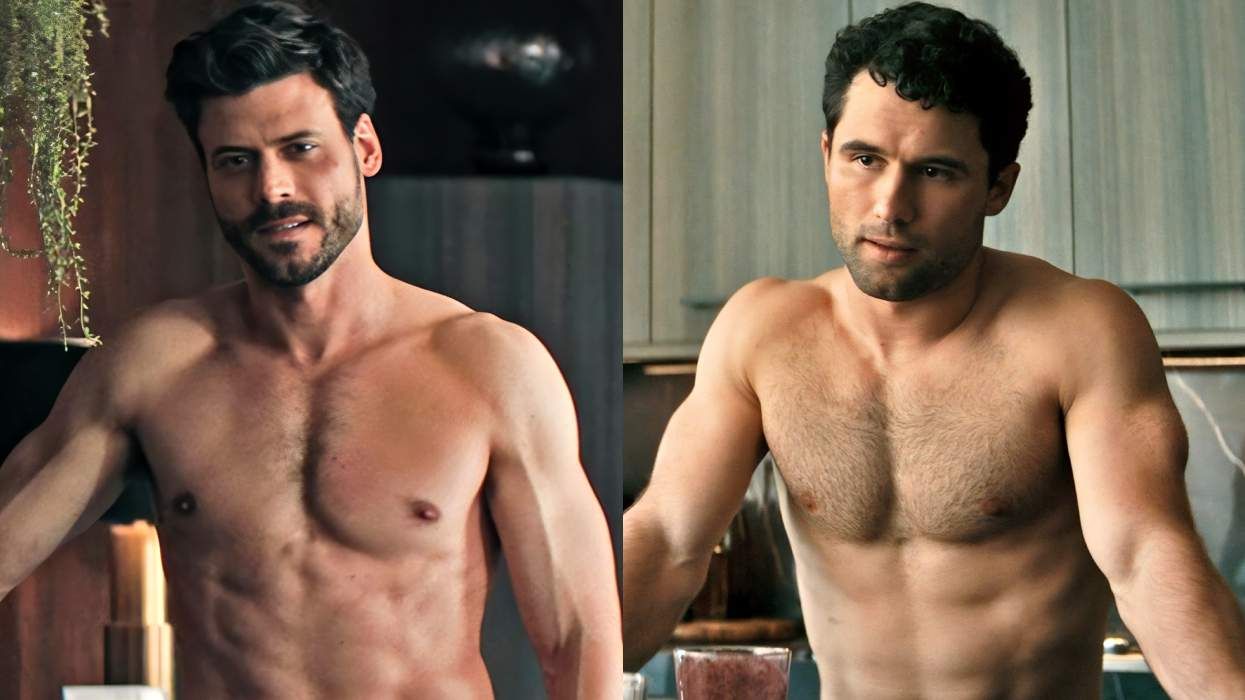Much has been written about the exile and death of Oscar Wilde, but it has seldom been depicted. The 90's prestige picture Wilde, starring Stephen Fry, largely sidestepped his lonely Parisian poverty and illness, and the other films and plays about the life of Wilde usually center on the trial that put him behind bars and ended his career. But the end of Oscar Wilde's life is an essential chapter in gay history: it remains the signature cautionary tale about the penalties for living openly. In his extraordinary autobiographical piece De Profundis, written as a letter to his lover Lord Alfred "Bosie" Douglas, Wilde described his life after the sentence: "I am completely penniless, and absolutely homeless. Yet there are worse things in the world than that... To deny one's own experiences is to put a lie into the lips of one's own life. It is no less than a denial of the soul." There is no more courageous downfall in the history of authors.
It is in this state of penury and isolation that Rupert Everett finds the dramatic heart of The Happy Prince, the long gestating Wilde project which he wrote, directed, and stars in. As in Prick Up Your Ears, a slightly better biopic of another doomed gay playwright, the structure is time-hope through memory, and the tone is elegiac and shrouded in grief, but not regret. We follow Wilde through the Parisian underworld, into the absinthe nightclubs and up the stairs to the hovel where he died, and because the visual style is cloudy with a narrow depth of focus, we easily slip into Wilde's perspective. He is a waning master of wit and ribaldry, still eager to impress, and he is stubbornly, defiantly himself, though he faces scorn on his left and violence on his right. "Why would a perfectly lovely leopard change its spots?" he asks. Addicted to his vices and unable to support himself, he volleys himself into a speedy decline, and remembers his short-lived days of hope upon his initial release from jail, when he traveled around Europe, frequently faced with creditors. And while he tried to get the grips on what's left of his reputation, he had to grapple with the inevitability of his demise.
In these memories we meet the few who tried to keep Wilde going while everything else was telling him to die. Everett seems to have called in favors from major stars of British cinema, both of whom are excellent in their small parts. Emily Watson is splendid as Wilde's long-suffering wife. Constance Wilde, one of his great loves as well as his most notable victim, kept him on the meager allowance he spent mainly on absinthe, cocaine, and boys. Colin Firth appears as Reggie Turner, a writer and devotee whose steadfast support continued until the very end, but whose friendship is glossed over here. Far more time is spent in the company of Wilde's lover and literary executor Robbie Ross (Edwin Thomas) as well as "Bosie" Douglas (Colin Morgan), whose final betrayal of Wilde is nicely handled.
The whole of The Happy Prince has the air of necessity. The worldwide scandal that killed Oscar Wilde is something we should still be talking about, but this also feels necessary for Everett. It took ten years to get it made, so he gives everything he has to the role. Under thick makeup and a fat suit, Everett looks entirely unlike himself, which is to say he looks less than
gorgeous for once. His natural charm suits Wilde beautifully when it is called upon, but such scenes are all too rare here. By choosing to center The Happy Prince in a period of absolute and unmitigated suffering, the film sacrifices the exuberance and variety of a more encompassing biography. And there is an unfortunate incongruity between the morose, green-tinted Parisian decline and the more vivid scenes between Bosie and Douglas. So while Everett's transformation is impressive, the role as written falls short, making The Happy Prince a sorrowful encounter, and not just because of its unhappy insights into Wilde's martyrdom.
Everett's reverence is obvious, but I desperately wish his ambition to write, direct, and star was matched by a more cogent production, though the lovely photography by John Conroy does a fine job of disguising Everett's mistakes. Wilde once wrote that consistency is the last refuge of the unimaginative, but if The Happy Prince is any indication, Wilde got that one wrong. The decision to center Wilde's death, though novel, makes engaging and consistent filmmaking a challenge this first-time writer and director is not quite imaginative enough to meet.






